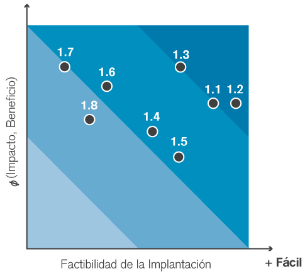1 - Fostering collaboration between Universities and Business
1.0 - Beginning
Introduction
The Knowledge Society is based on three essential pillars: Enterprise, Universities and Public Administration. The effective interaction between these three agents is critical to realising the European aspiration of becoming the world’s most advanced economy and society. The European Union has continuously promoted this idea, and it was the main focus of the Modernisation Agenda for Universities: Education, Research and Innovation, presented in 2006.
In 2009, the Communication from the European Parliamentary Commission to the Council, the European Economic and Social Committee, and the Committee of the Regions suggested that Universities should develop structured partnerships with the business community with the aim of "acquiring increasing economic power, being able to respond more quickly to market demands and establishing partnerships which maximise scientific and technological knowledge ".
Indeed, Universities and business have always operated at different speeds and independently of each other, mainly because they have very different interests, goals and target publics. However, in today's society, in which Knowledge forms the backbone which sustains the world's most advanced economies, the relationship between the two could resemble what in biology is called "mutualism". Therefore, creating a scenario in which both agents can obtain benefits seems to be the best way forward and the most logical option for the future. Numerous studies highlight the huge number of historical barriers which have hindered this important relationship, although, as the American economist James J. Casey, points out in his article “The University-Industry Demonstration Partnership: an incremental improvement in University-Industry Collaboration”, solving these differences "is only a matter of time". Nevertheless, time is an essential variable of competitiveness.
Problems identified
- Cultural differences of the agents caused by their differing goals: the Universities generate and transmit knowledge created from basic research whereas Industry focuses on the application of knowledge to generate profit.
- Cultural impediments to collaboration.
- Different timescales in the implementation and development of projects.
- Ignorance on both sides of the Open Innovation model.




